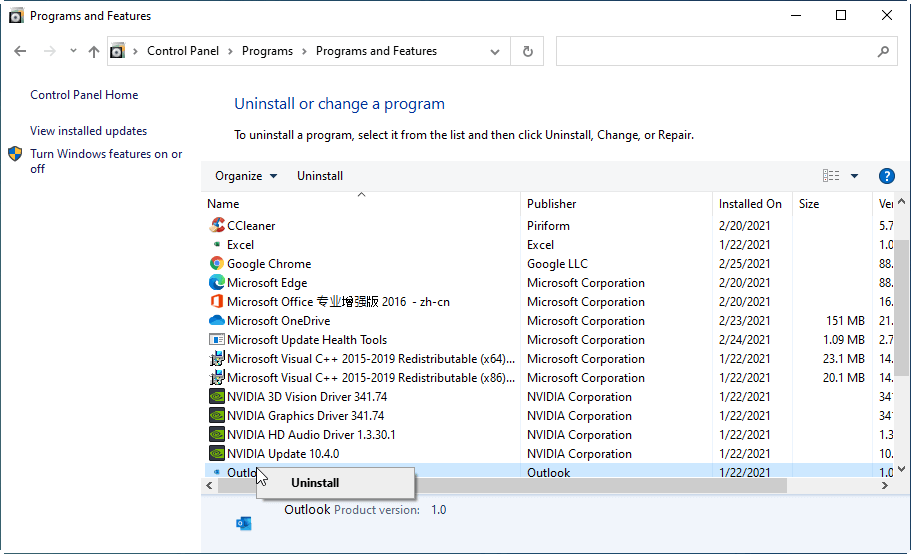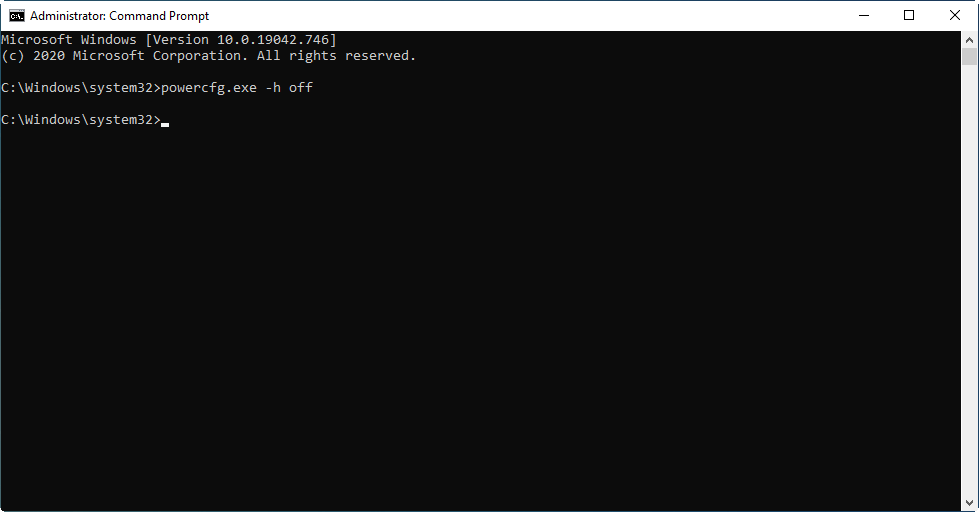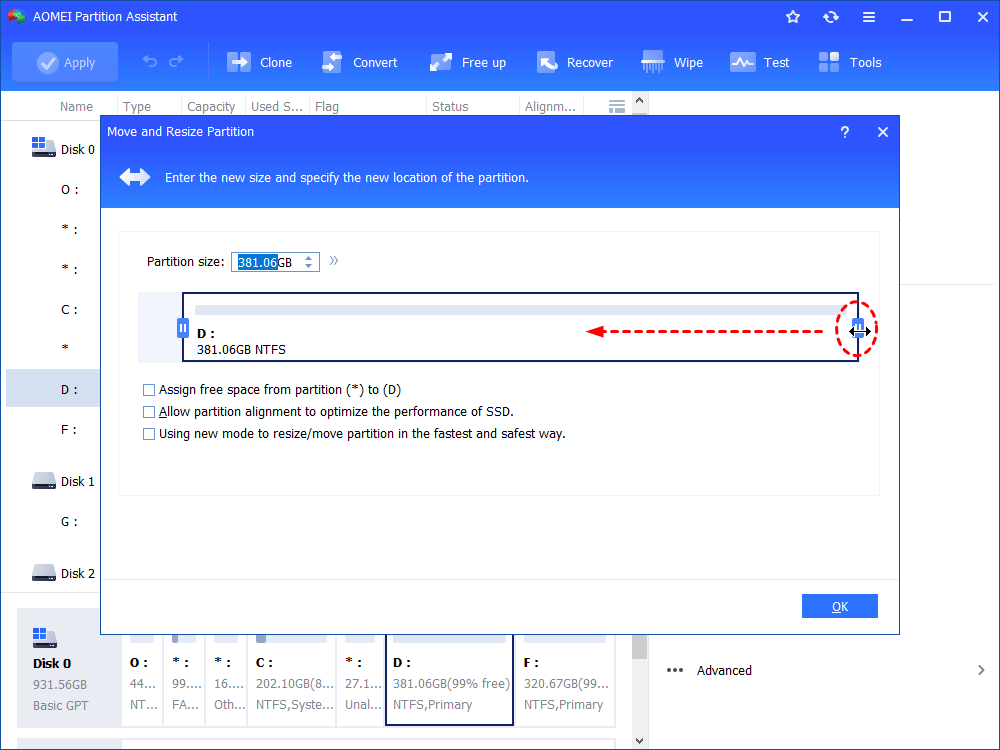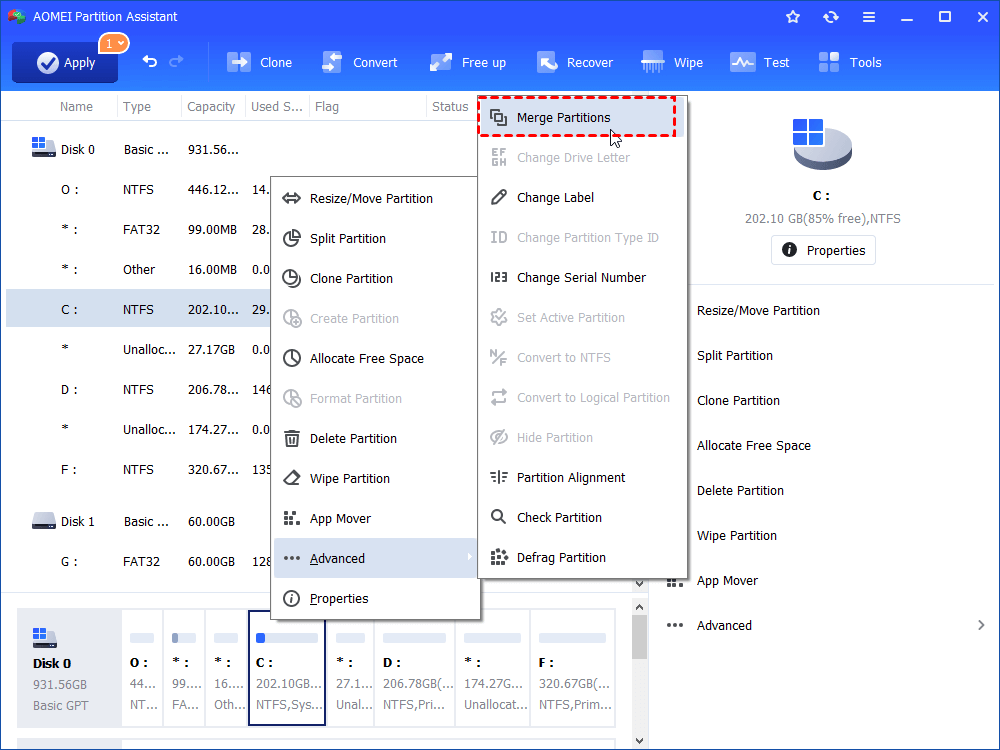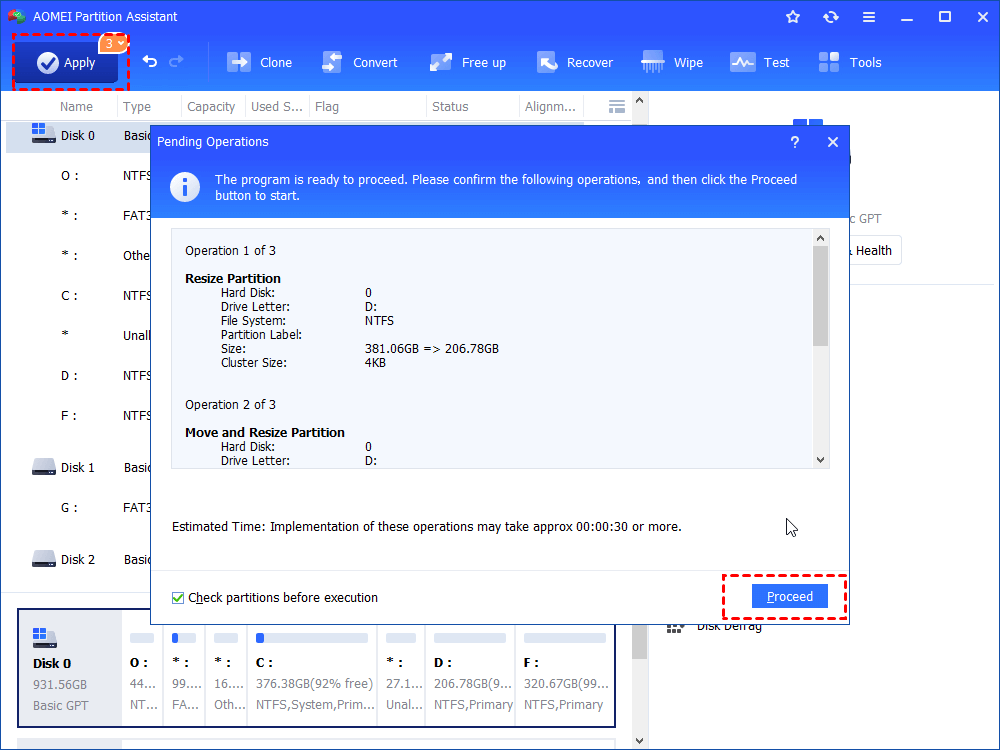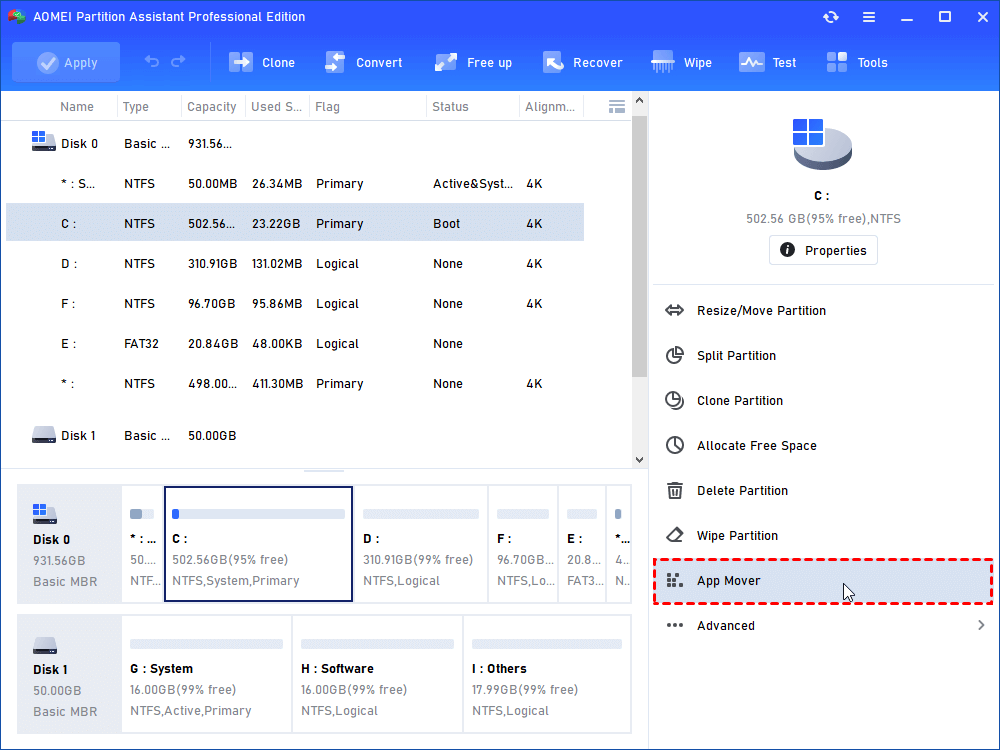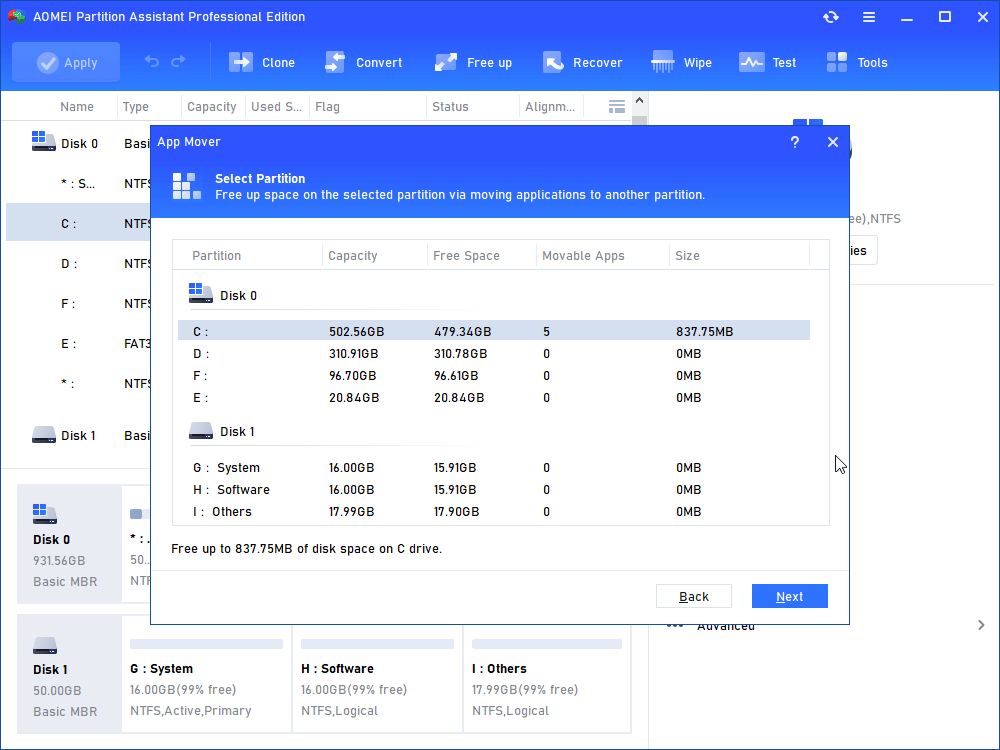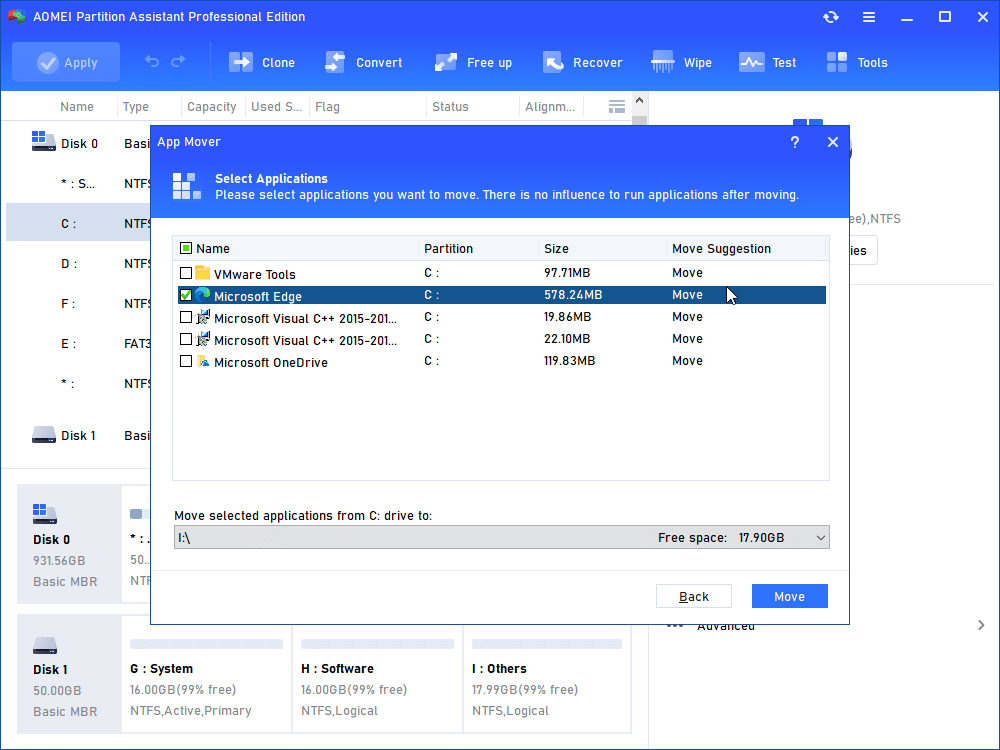How to Fix C Drive Full Windows 10 within Only A Few Steps?
The issue C drive full windows 10 is a headache and can bring you quite a lot of trouble. If you want to find out where those extra files come from and the solution to this issue, this should be the right article for you.
Why Is My C Drive Full Windows 10
Do you see the notification “You are running out of space on Local Disk (C:)”? If so, you can find your C drive is full and also, may notice that the computer is running slower than before. Why does this warning pop up? What is eating up space on C drive? Here, I listed several common factors that may make the C drive space smaller.
1. Your system may be infected with viruses and malware that keep generating adverse files to the C drive.
2. Windows system-related files accumulate on the C drive.
3. There are more and more installed Apps, Windows inbuilt programs, and downloaded software on that drive.
4. User data including documents, photos, videos, and music are saved on the desktop that belongs to C drive.
There could be more reasons behind this issue but that is not quite important. What you should be concerned about now is how to solve this problem.
Solutions to C Drive Full Windows 10
If the C drive is full or nearly full, many issues could happen. For example, you may notice your computer is suffering from slow speed and also, there could be frequent system crashes. So, in the following contents, you’ll learn some basic and pragmatic ways to make the C drive return to normal.
Solution 1. Run Antivirus Software
Before trying to delete any files on your PC or make any changes to it, the first thing to do is to fully scan your system with some antivirus software like Windows Defender. Because once your PC is infected with virus, there is possibility that adverse files keep being written to your system.
Solution 2. Use Disk Cleanup to Clear Unnecessary Data
Over time, junk files like cookies and cache can get clogged up in C drive. In this case, the Windows inbuilt program Disk Cleanup may come handy to help you delete some unnecessary files.
1. In the search box on the lower left, type “disk cleanup” and hit “ENTER” to bring up the disk cleanup dialogue box.
2. Select drive C that you want to clean and hit “OK”.
3. Tick off those files you want to clean and hit “OK”.
4. You will be prompted to confirm the operation. Then, confirm it to proceed.
Solution 3. Use Storage Sense to Clean C Drive Regularly
Similar to Disk Cleanup, Storage Sense is also a Windows inbuilt program to help clean any of your drives but much more powerful and efficient because you can let it clean your computer at intervals.
1. In the start menu, select “Settings”.
2. On the page of Windows Settings, click on “System”.
3. Select “Storage” on the left side and toggle on Storage Sense.
Note: After you activate Storage Sense, it works only when your computer is low on space. To clean up unused and junk files now, select “Configure Storage Sense or run it now” and hit “Clean now”.
Solution 4. Delete Unwanted Apps to Reclaim Disk Space
Some applications that you seldom use usually occupy quite a lot of storage space. At this point, you need to manually delete them to free up space.
1. In the search box, input “Control Panel” and hit “ENTER”.
2. In the popup window, hit “Programs”.
3. Select “Programs and Features”.
4. Then, all Apps on your computer are listed. Right-click the App you don’t want and select “Uninstall” to remove it from the computer.
Solution 5. Delete Hibernation (hiberfil.sys) Files to Get More Free Space
When your PC is idle, you can leave it in hibernate mode which uses very little power. Compared with shutting it down, hibernate mode makes the computer available much more quickly when you need it. It seems literally convenient for users but generates many files in your hard drives including the C drive. If you’re suffering from the issue “My C drive is full Windows 10”, you might as well delete all hibernation files on your PC.
1. In the search box, input “command prompt”, right-click on “Command Prompt” and select “Run as administrator”.
2. In the popup window, input “powercfg.exe -h off’ and hit “ENTER”.
After that, you can find there is more free space on your C drive.
Solution 6. Enlarge C Drive with Free Partition Manager
If none of those methods mentioned above work and your Windows 10 C drive is still full, maybe it’s time to borrow some space from other drives. Of course, you can turn to Windows Disk Management for help, but it has many limits, for example, it only supports resizing partitions in NTFS and RAW; moreover, it only supports merging a partition with unallocated space that is adjacent to it and on its right side.
Luckily, this time, there is a better alternative – AOMEI Partition Assistant Standard – which is free from these limits. With this powerful software, you can not only resize the C drive without caring about the location of the unallocated space, but also resize encrypted partition, and you can perform operations including formatting partitions, creating partitions, and deleting partitions. Moreover, unlike some of its counterparts, this software doesn’t come with any bundleware and it’s totally free.
PS: If there is no unallocated space, you need to manually create one; If there is already one piece of unallocated space, you can jump to Step 4 directly.
Step 1. Install and launch AOMEI Partition Assistant Standard. Then, all disks and partitions will appear on the interface.
Step 2. Right-click on the disk you want to shrink and select “Resize/Move Partition”.
Step 3. Drag the circle on either side of the green bar to determine the size of the unallocated space. Click on “OK” to proceed.
Step 4. Now, you can see there is a piece of unallocated space on the disk. Right-click on C drive and select "Advanced" > “Merge Partitions”.
Step 5. Tick off the unallocated space you just create and hit “OK”.
Step 6. Hit “Apply” on the upper left of the interface and then, hit “Proceed” to start the merging process.
Just wait a few seconds before it’s done.
Solution 7. Move App to Another Drive to Free up Space
In Solution 6, we have learnt that with the standard version of AOMEI Partition Assistant, you can extend the C drive by shrinking another drive and merge the created unallocated space into the C drive. However, if you don't wish to make another drive smaller, then, there is a better function in AOMEI Partition Assistant Professional - the App Mover. With this feature, you can move your Apps including Microsoft Office and games from the C drive to another Drive to free up space.
Step 1. Install and launch AOMEI Partition Assistant Professional.
Step 2. Click on the partition on the disk and select "App Mover" from the right column.
Step 3. Select the C drive and hit "Next“ to proceed.
Step 4. Tick the apps and programs you hope to move and then, preset a destination drive for them.
Step 5. Hit "Move" and then, "OK" to start the transfer.
Step 6. When it's done, hit "Finish".
Conclusion
How to solve the problem of C drive full Windows 10? In this post, 7 solutions are given. Just try them in order and hopefully, you can find your way out. As for AOMEI Partition Assistant Professional, only several features are revealed in this post and there are more useful features waiting to be discovered. If you want to use this software on Server, please try the Server edition.

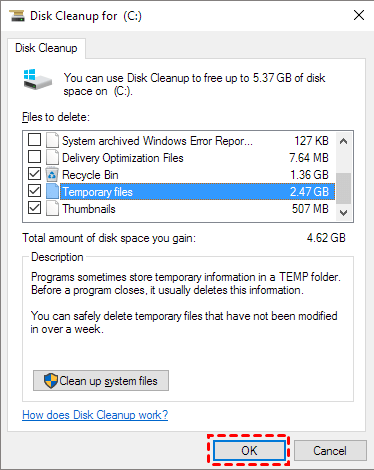
.png)
